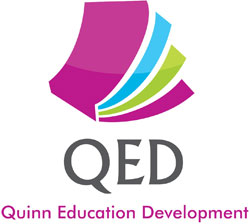The Responsible Behaviour Curriculum: Unlocking Engagement for Ages 3 to 16
The Responsible Behaviour Curriculum offers a comprehensive and structured approach to teaching children, from the age of 3 to 16, essential life skills and executive functions. This curriculum is meticulously designed to support children in their development journey by focusing on four key areas: Functions, Fences, Framework, and Features. Each area is crucial in fostering an environment conducive to engagement, learning and personal growth.
Functions: Developing Executive Functioning
The curriculum starts with a foundational book that outlines the progression children go through to develop their executive functioning skills. Executive functions include essential cognitive processes such as working memory, flexible thinking, and impulse control. The book provides educators with strategies to support children in enhancing these skills, enabling them to become more organised, focused, and emotionally regulated.
Fences: Establishing Boundaries and Expectations
Next, the curriculum addresses the importance of setting appropriate boundaries and expectations, referred to as “Fences.” These boundaries are tailored to be age-appropriate and are crucial for creating a safe and predictable learning environment. Clear expectations help children understand what is expected of them, fostering a sense of security and discipline.
Framework: Teaching Essential Language
The “Framework” aspect of the curriculum emphasizes the importance of language development. It focuses on teaching children the language they need to articulate their thoughts, emotions, and needs effectively. By equipping children with the right vocabulary, they can better navigate social interactions and express themselves clearly.
Features: Promoting a Supportive Environment
The final component, “Features,” involves creating an environment that encourages engagement and learning. This includes fostering positive relationships among students, teachers, and all stakeholders involved in the child’s education. A supportive environment is essential for unlocking each child’s full potential and ensuring they feel valued and understood.
Comprehensive Training and Implementation
The full programme includes ten recorded training sessions designed to help educators understand how to integrate the curriculum into their school. These sessions also assist in creating a detailed action plan for implementation. This ensures that the curriculum is seamlessly interwoven into the school’s existing timetable and curriculum.
Lessons, Assemblies, and Parental Involvement
An essential part of the programme is its structured lessons and assemblies tailored to different educational stages, from early years to the end of key stage 3. These sessions are available through a subscription and include additional resources such as speech therapy support, yoga exercises, and tips for supporting neurodiverse children. Parental involvement is also emphasised, providing information and support to help reinforce the curriculum at home.
Practical Implementation and Continuous Support
Implementing the Responsible Behaviour Curriculum involves assessing what is currently working in your school and identifying areas that need improvement. For instance, while organisational skills might be well-developed among students, emotional control might require more attention. The curriculum provides benchmarking tools to help educators set realistic expectations for children at different ages and devise appropriate teaching scenarios.
Addressing Barriers and Integrating Values
Identifying and overcoming barriers is a critical part of the implementation process. This might include addressing misconceptions about age-appropriate behaviours, overcoming language barriers, and ensuring all stakeholders are on the same page. Schools are encouraged to integrate the curriculum with existing lessons, particularly those that align with values like tolerance and respect.
Protected time within the school timetable, such as form or tutor time in secondary schools, should be allocated for teaching these essential elements. Moreover, reinforcing the school’s core values can significantly enhance the curriculum’s impact, ensuring consistent and meaningful engagement from the entire school community.
The Responsible Behaviour Curriculum is a comprehensive tool designed to empower children with the skills they need to succeed academically and socially. By focusing on executive functioning, appropriate boundaries, effective communication, and a supportive environment, this curriculum lays a solid foundation for lifelong learning and personal development.
For further support and guidance, schools are encouraged to reach out to the curriculum’s providers, Quinn Education Development Ltd, ensuring a smooth and effective implementation process.
Get in contact for more information!
Read more on this subject – Behaviour: Are we at crisis point?
